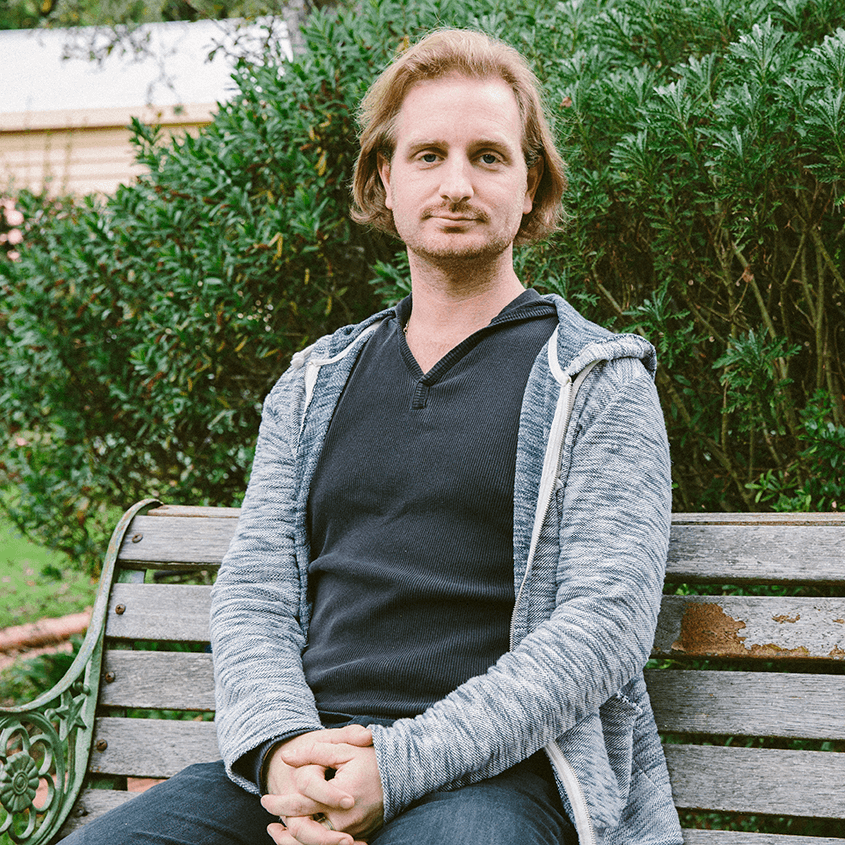“What are you here for?”
“Psychosis.”
“Cool, I’m here for anxiety and depression… want to go on the trampoline?”
That was a 14-year old Nic Newling’s welcome to Rivendell, a school and psychiatric hospital for young people. And it couldn’t have been better.
For the first time in his life, Nic was surrounded by other kids learning to live with - and overcome - mental illnesses; a shared experience that helped him start to make sense of his own thoughts and feelings. That - and the fact he was able to talk to his family and doctor through his worst moments, when the walls crowded in and dark, violent voices crept into his head.
Sadly, talking was a luxury Nic’s brother Christopher never allowed himself, taking his own life at just 18. Yet, even amidst the aching grief of his older brother’s suicide and his own troubles, Nic was still able to see that one difference very clearly.
“Looking back, I was talking about things, but Chris wasn’t.”
It was a recognition that was to set the future direction of Nic’s life – even if he still had to travel a long, dark and difficult road to find it.
“Nobody will be surprised to learn that in the years after Chris died, things got worse.
“So bad in fact, not long after I started back at my old school, a session with the counselor ended with him calling my parents and then taking me straight to hospital because he was so worried.
“I ended up in the ICU unit of a psych ward, which… yeah… is pretty confronting.”
But it was also the moment everything changed, because as Nic’s regular doctor arrived at the hospital, he witnessed his young patient in the midst of one of the manic ‘highs’ that characterise bipolar disorder.
“In my experience, people with bipolar rarely complain about the highs, which, I guess, is one reason why it’s so hard to diagnose.
“But once I started taking the right medication for the right illness, my mood and my life finally started to level out.”
Which, according to Nic, makes him one of the lucky ones.
“In Australia, the average time between the onset of bipolar symptoms and a diagnosis is 10 to 20 years and sadly, many people never get a diagnosis at all.
“Being aware of my illness made it easier to pick up the pieces and put them back together.
“Don’t get me wrong, I was still angry. I’d lost my adolescence to this thing – but what I got in return was the realisation that I wanted to help not just people facing mental illness like me, but also help everyone else understand it.”
For Nic, that journey started at The Black Dog Institute where, among other things, he became a speaker.
“My first talk was to a group of school principals and afterwards an older guy came up to me and said, ‘Thank you. I’ve walked in your shoes.’
“It made it very clear to me the power that sharing experiences and just talking can have for people who are struggling."
That revelation led to the next step on Nic’s journey; establishing The Champions, a foundation aimed at encouraging the sharing of personal experiences to remove the stigma associated with speaking up and seeking help.
“As the name says, we champion individuals sharing to help improve mental health for everyone.
“You don’t have to be a therapist – just be a listener.
“And allow them to help you understand.”
---
Need help navigating a chat with someone who might be struggling? Use these simple tips to open and guide the conversation.
If you, or someone you know, is feeling low, don't hesitate to reach out for support using these local support resources.











